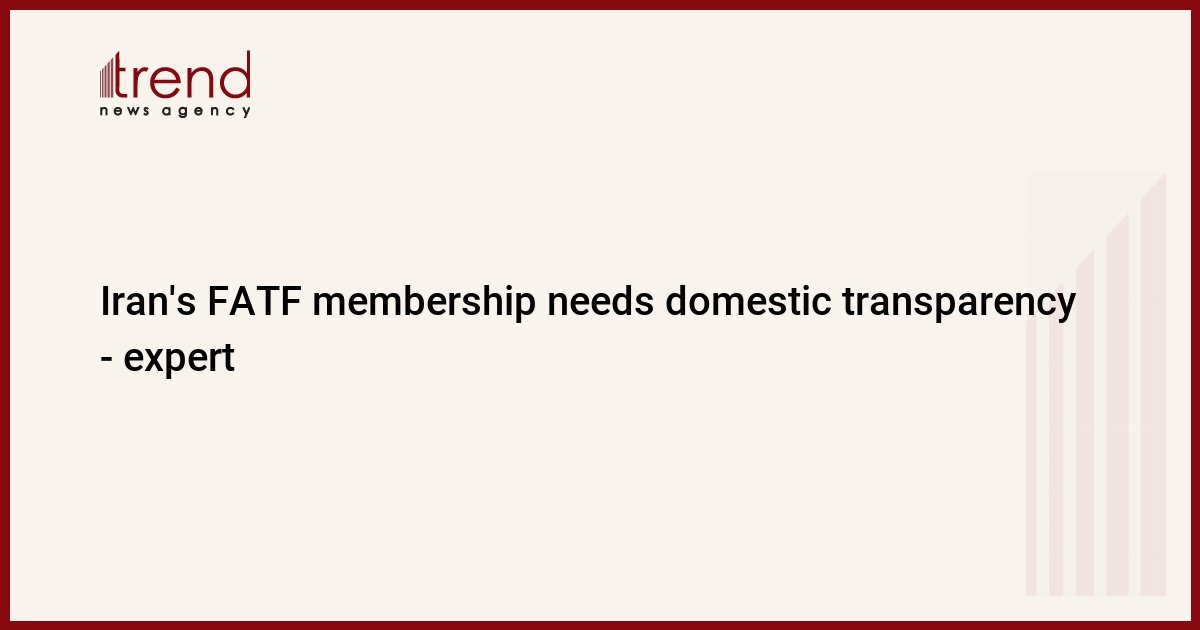Iran Materials 18 September 2024 14:12 (UTC +04:00)
Follow Trend on

BAKU, Azerbaijan, September 18. In order to become a member of the Financial Action Task Force (FATF), Iran must implement significant reforms within the nation and guarantee transparency, the Iranian expert Farshid Bagherian told Trend.
According to him, the clarity of finances, expenses, and taxes in Iran leaves much to be desired.
Bagherian added that behind closed doors, a number of circles, institutions, and organizations in Iran are pulling the strings to secure their budgets in the shadows. This is a real can of worms when it comes to financial transparency.
“In this regard, financial transparency inside Iran is still at the level of an idea. All the financial transparency work has to be done, and then FATF inspectors have to confirm this transparency. Because if the financial transparency inside the country and all related issues are not in order, Iran’s joining FATF is not possible,“ he noted.
The Iranian expert stated that it will take several years to implement these financial and FATF-related works inside Iran. First of all, the rules of banking networks, interbank communications, people’s dealings with banks, liquidity, money printing, and so on should be observed.
The Financial Action Task Force (FATF) of the Organization for Economic Cooperation and Development is an intergovernmental body that regulates rules against money laundering and financing of terrorism. At the last meeting of this organization, Iran was warned that if Iran’s program of steps is not improved, Iran may be added to the list of non-cooperating countries. Iran has complied with 37 out of 41 FATF steps.
The remaining four steps or conventions fall under the area of legislation. “Amendments to the Law on Combating Money Laundering,” ‘Amendments to the Law on Combating the Financing of Terrorism’, ”Accession to the International Convention on Combating Transnational Organized Crime (Palermo), and Accession to the International Convention on Combating the Financing of Terrorism (CFT) have been drafted by the Iranian government and sent to the parliament. Although the four conventions have been approved by the parliament and sent to the Advisory Council, the CFT conventions and the Palermo Convention have not yet been approved by the mentioned council.
FATF was established in 1989 on the initiative of the G7 group to combat money laundering. The organization has 37 members and its secretariat is located in Paris.
Iran has been on the FATF blacklist since 2007, and since 2009, retaliatory measures have been officially applied against Tehran. Therefore, countries had to be cautious in their financial and banking transactions with Iran. Since 2016, the implementation of diplomatic measures against Iran has been postponed.
To note, the financial group FATF added Iran to the list of non-cooperative countries (blacklist) on February 21, 2020.
